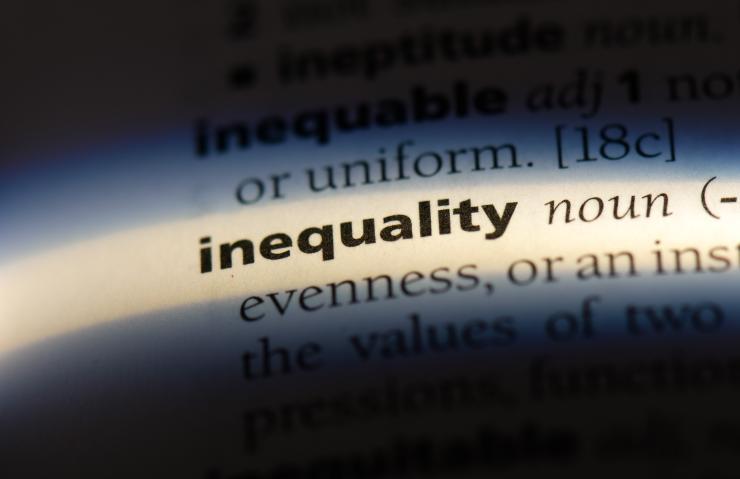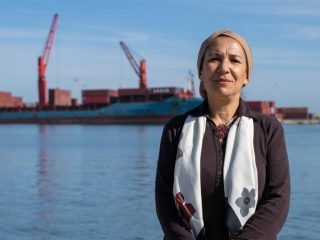Inequalities. Africa and Climate Change, New Fiscal Rules Are Needed.

Africa is responsible for only 4% of CO2 emissions but is suffering enormous agricultural and health damage.
It is proposed to provide help by taxing multinationals and the consumption of the richest countries.
Climate change is making its effects felt on humanity, affecting the cornerstones of survival and social organization. But accountability and consequences don’t follow a consistent pattern. On the contrary, they move in an inversely proportional relationship, in the sense that those who have polluted the least suffer the greatest damage.
This is what is highlighted by the Climate Inequality Report 2023 published by the World Inequality Lab work group. Climate change is known to be due to the accumulation of carbon dioxide in the atmosphere which began to accelerate during the industrial revolution and due to reach stratospheric levels of our days.
It is estimated that 2,453 billion tons of carbon dioxide have been emitted since 1850, but the contribution of the different continents is extremely different. The biggest polluter was North America, responsible for 27% of all historical emissions. Followed by Europe (22%), China (11%), Russia and South Asia (9% each) and Latin America (6%).
The one that has polluted the least is Africa, responsible for just 3.8% of all the carbon dioxide emitted in the last two centuries. Even the data on current emissions tell us that Africa is the least to blame for all. In 2017, according to the latest available calculation, at the top of the list, we find China with 23% of emissions, followed by the USA (19%) and the European Union (13%).
Africa comes last with 4%, as evidenced by the fact that half of its population still does not have any type of electricity. But if we come to the damage, Africa is the continent that is paying the most. On all levels: agricultural, health, water or social.
On an agricultural level, climate change has a paradoxical effect because productivity has increased in the northernmost part of the globe, as evidenced by Canada and Russia. In the subtropical areas, on the other hand, agriculture is severely damaged, in some areas due to excess rainfall and in others due to its absence. In 2022, Pakistan was hit by a vast flood that caused almost 2,000 deaths and losses of over 15 billion dollars, of which five billion were attributable to the agricultural sector.
In Africa, however, in the Sahel region, the problem is drought. Countries such as Mali, Niger, Sudan, and Somalia, have experienced drops in agricultural productivity of up to 40% in recent years due to the lack of water. The reduction in agricultural harvests has the immediate effect of causing hunger, because in Africa, as in many other countries in the southern hemisphere, a significant percentage of families still practice subsistence agriculture, i.e., they live directly from what they produce. And when there is no more to eat or drink, the only option is to leave.
In 2022, in Somalia, due to drought, more than a million people moved in an attempt to survive. It is the drama of displacements due to natural causes that are destined to get increasingly worse. The World Bank calculates that between now and 2050, over 200 million people could find themselves forced to migrate to neighbouring cities or towns to escape the disasters caused by climate change.
In addition to hunger, thirst, or drowning, climate change can also kill from excessive heat, because heat waves aggravate the condition of those who are already fragile for other reasons. From this point of view, rich countries are also particularly exposed because they have a large percentage of elderly people.
But age is not the only element of fragility that can transform excess heat into mortal danger. Even young people may be at risk of dying if their nutritional status is deficient and if they suffer from recurrent illnesses. For this reason, despite being the continent with the highest proportion of young people, Africa is included among the areas of the world at high risk of mortality due to heat waves.
Moreover, various studies are demonstrating that climate change also affects the biological cycles of insects, including those that transmit diseases. For example, a resurgence of dengue, a viral disease transmitted by the Aedes mosquito, and malaria, a parasite transmitted by the Anopheles mosquito, is expected in tropical and subtropical areas where these diseases are already present.
Climate change imposes a double challenge on all the countries of the world: a change of energy approach to breaking the link with fossil fuels and the adoption of useful measures to protect themselves from the damage caused by climate change is now under way. But all this requires a great financial effort and the countries that most need to defend themselves are those least able to do so due to their own poverty.
Focusing on Africa alone, all the 53 countries that comprise it have declared a need of 2,800 billion dollars for the decade 2020-2030, 70% to be used for transition and energy strengthening and 30% for increased resistance to climate change.
But African governments have admitted that they can cover just 10% of their needs or 264 billion dollars.
All the rest will have to come from elsewhere. And this is where international solidarity comes into play, but it is leaking from all sides. Despite pledges by rich countries to allocate $100 billion annually to poorer countries specifically for climate change-related spending, in 2020 the amount raised stood at $83 billion. All sorts of hardships are invoked by rich countries to justify their defaults, but the World Inequality Lab report points to ways to boost the climate spending relief fund, three in particular.
The first proposal concerns the introduction of a tax on air and sea travel. It has been calculated that if the proposal were adopted by all 195 signatory countries of the Paris Agreement, it could generate an income ranging between 132 and 392 billion dollars a year.
The second proposal concerns the taxation of multinationals. A recent agreement promoted by the OECD provides ways to prevent multinationals from evading taxation by taking advantage of the fact that they operate on a global scale.
The aim is to force multinationals to pay at least 15% of all profits earned worldwide through a series of tax measures that should be applied first and foremost in the countries where multinationals operate through their subsidiaries. But if this level of taxation were not to be activated, or for some other reason should prove insufficient, the system tries to recover the losses through a mechanism that allows the countries in which the parent companies reside to also tax the profits made abroad. This is good, but it is less good that the money is pocketed by the states that are lucky enough to host the parent companies, usually the richest.
However, this injustice could be remedied if that money were donated to funds created to provide assistance to the countries of the South of the world, primarily the ones against climate change.
The third proposal is the invitation to seriously tax the incomes and assets of the richest. This would allow not only to raise funds to be allocated to the fight against climate change, but to directly reduce carbon dioxide emissions since 50% of all carbon dioxide emitted annually worldwide is due to consumption by the richest 10% of the world’s population.
It is a class without borders, considering that billionaires are found not only in North America, Europe, and Japan but also in China, India, and Latin America. Therefore, the responsibility for fair taxation falls on all the countries of the world, but above all on those with a high per capita income. (Open Photo: 123rf.com)
Francesco Gesualdi



